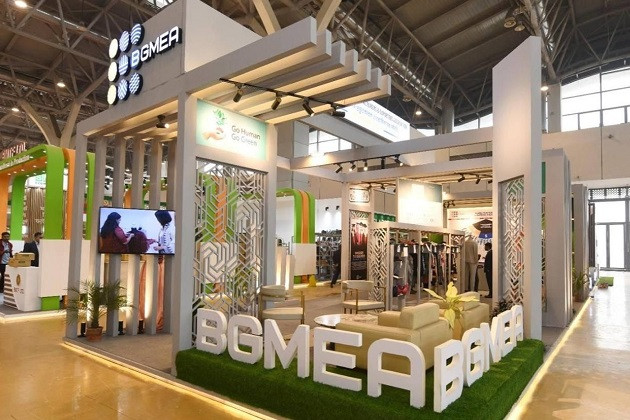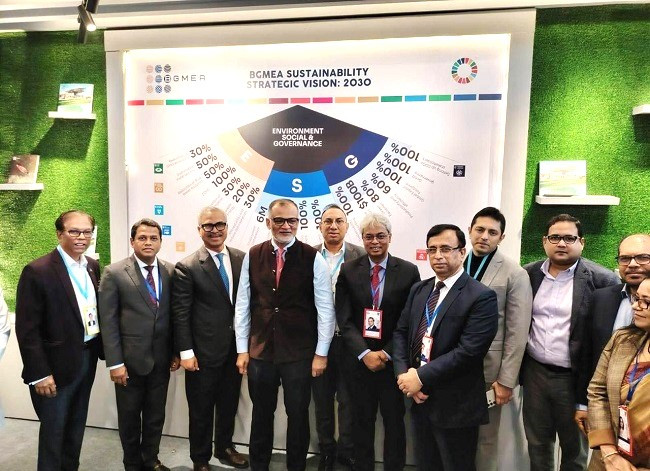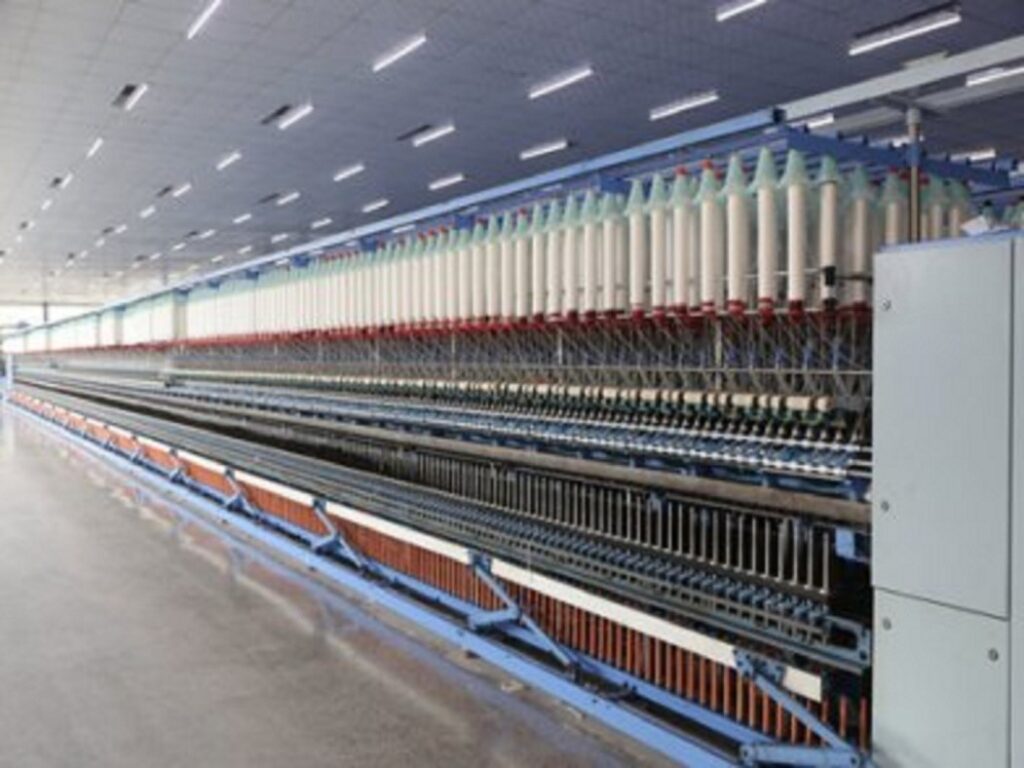Dr. Christian Schindler, Director General & Dr. Olivier Zieschank, Director
International Textile Manufacturers Federation (ITMF)
Zurich, Switzerland – December, 2024
A) Business situation deteriorated slightly, but slow long-term improvements persist
The 29th ITMF Global Textile Industry Survey (GTIS), conducted in November 2024, analysed the business situation across regions and market segments in the global textile industry. Globally, 38% of participants rated the business situation as “Poor,” 42% as “Satisfactory,” and 20% as “Good,” resulting in a balance of -17 percentage points (pp). This represents decline since the last survey (-13pp) but shows recovery from the -46pp low of November 2023 (see Graph 1 and 2).
Graph 1: Business Situation (World balance), September and November 2024
Graph 2: Business situation (World balance*) since May 2021
*Balance = share of respondents answering good vs. poor Source: 8-29th ITMF Global Textile Industry Survey (29th: 18-25.11.2024) | last data point = November 2024
The global textile value chain continues struggling with a very difficult business environment that is marked by relative weak demand and elevated costs resulting in low profit margins (see Article 6). Order intake has improved slightly but is still in negative territory resulting in relatively low capacity utilisation rates. Nevertheless, it is worthwhile noting that 20% of companies are reporting good business and 42% are satisfied. After “Weak demand”, the next biggest concern is “Geopolitics”. Companies are worried that the military conflicts (Russia’s invasion of Ukraine and the war in Gaza/Lebanon) as well as the immanent trade conflicts (various tariff increases were announced by the incoming Trump-administration) will continue to hamper global growth. The IMF is forecasting that global economic growth in 2025 will be 3.2%, practically unchanged from 2024 (3.3%). While inflation has come down both in the US and Europe to the target levels of around 2% allowing central banks to consider continuing lowering their interest rates, they are at the same time cautious as a potential “tariff-war” might cause new inflation pressure.
Regionally, South America and Africa were the only areas with positive balances (+28 pp and +27 pp, respectively, see Graph 3). South America’s good business situation is closely linked to Brazil’s strong domestic economy and the relatively small trade volume and therefore a reduced exposure to the global economy. The good business situation in Africa is closely linked to the predominant garment industry that is performing better than all the other segments. All other regions recorded a negative balance. South Asia, Europe (including Türkiye and Central Asia), and North and Central America, reported worsening balances. East and South-East Asia showed slight improvements, despite East Asia remaining at -49 pp. While short-term trends show varied regional performances, all regions but Europe reflect long-term improvement from earlier lows.
Graph 3: Business situation by region since May 2021
(1) incl. Türkiye and Central Asia | (2) incl. Central America | (a) incl. woven and knits | (b) incl. auxiliary and dyes, (c) incl. dyed, finished and printed fabrics
Among market segments, the garment industry posted the most favorable result (-5 pp), driven by 23% reporting “Good” business conditions (see Graph 4). Finished fabrics and yarns producers also saw moderate improvements. However, woven and knitted fabrics recorded the lowest balance (-67 pp), with no participants rating conditions as “Good.” Long-term recovery trends are currently only visible in the garment and to a weaker extent in the home textile segments.
Graph 4: Business situation by segment since May 2021
The global textile value chain continues struggling with a very difficult business environment that is marked by relative weak demand and elevated costs resulting in low profit margins. Order intake has improved slightly but is still in negative territory.
B) Global textile industry remains optimistic about future business prospects
ITMF’s 29th Global Textile Industry Survey (GTIS) surveyed the global textile industry’s outlook for the next six months. It found a positive global sentiment with a balance of +27 percentage points (pp) between optimistic and pessimistic responses (see Graph 5). This marks the second consecutive month of improvement. Since the beginning of 2023 business expectations are in the range between +20 and +30 pp. This positive outlook did not change even though the business situation has not improved significantly since. This conundrum illustrates that companies have not expected this difficult business environment – above all weak demand – to persist for such an extended period. They nevertheless remain optimistic about the future.
Graph 5: Business expectations (World balance*) in September and November 2024
Graph 6: Business expectations (World balance*) since May 2021
*Balance = share of respondents who answer more or less favourable | Source: 8-29th ITMF Global Textile Industry Survey (29th: 18-25.11.2024) | last data point = November 2024
Some incremental improvement of the business situation can be observed in the last 9 months justifying companies’ replies of a more favourable business environment in six months’ time. Nevertheless, anecdotal evidence suggests that most companies did not anticipate that weak demand would remain the main concern for such a long time. Many experienced company representatives say that they have never seen such a long period of relative low order income in their career.
Regionally, South America reported the most optimism at +60 pp (see Graph 7), followed by North and Central America (+38 pp) and South Asia (+33 pp). While South-East Asia and Africa expressed also a positive outlook (both at +27 pp), Europe (+16 pp) and East Asia (-11 pp) lagged. Expectations have improved over the past year in all regions except East Asia, where they deteriorated, and Africa, where they stagnated.
Graph 7: Business expectations by region since May 2021
(1) incl. Türkiye and Central Asia | (2) incl. Central America | (a) incl. woven and knits | (b) incl. auxiliary and dyes, (c) incl. dyed, finished and printed fabrics | Balance = share of respondents who answer more or less favourable | Source: 8-29th ITMF Global Textile Industry Survey (29th: 18-25.11.2024) | last data point = November 2024
By segments, yarn producers ranked highest at +41 pp (see Graph 8), followed by producers of fabrics (+33 pp) and fibres (+25 pp). Home textiles and technical textiles producers also reflected positive sentiment, albeit with some recent declines. Producers of textile chemicals/ dyes/auxiliaries remained the lowest at +15 pp, though still improved from earlier lows. Overall, the industry reflects cautious optimism with steady recovery trends across most segments.
Graph 8: Business expectations by segment since May 2021
C) Order intake improved globally with South America and garment sector leading
ITMF’s 29th GTIS also evaluated order intake sentiment. While 42% of participants globally rated order intake as satisfactory, the balance of positive versus negative responses improved to -12 percentage points (pp), slightly up from -14 pp in September 2024 and up from a low of -50 pp in November 2023. Graph 9 shows that order intake has improved continuously since November 2023, though the balance remains in negative territory.
Graph 9: Order intake (World balance*) since May 2021
Expectations for order intake indicate that companies are anticipating a further improvement going forward into 2025 (see Graph 10). Despite the business environment remaining very challenging, brands and retailers have steadily reduced their inventory levels during the past 24 months. This will eventually force them to place higher and/or more frequent orders.
Graph 10: Order intake (World balance* and expectations)
*Balance = share of respondents answering good vs. poor | Source: 8-29th ITMF Global Textile Industry Survey (29th: 18-25.11.2024) | last data point = November 2024
Regionally, South America exhibited the strongest order intake performance (see Graph 11), achieving a balance of +40 pp, driven by 44% of respondents rating conditions as “Good” (see Graph 11). Africa followed with a neutral balance of +/-0 pp, while Europe reported the weakest sentiment at -41 pp. Trends indicate improvement in most regions, though South Asia, Africa, and Europe have seen short-term declines.
Graph 11: Order intake by region since May 2021
By segment, the garment industry recorded the highest sentiment with a balance of +6 pp, reflecting an ongoing recovery from past lows (see Graph 12). Conversely, the textile machinery industry was the weakest segment at -62 pp. Despite overall global improvement, challenges remain.
Graph 12: Order intake by producer type since May 2021
a) incl. woven and knits | (b) incl. auxiliary and dyes, (c) incl. dyed, finished and printed fabrics | Balance = share of respondents answering good vs. poor | Source: 8-29th ITMF Global Textile Industry Survey (29th: 18-25.11.2024) | last data point = November 2024
D) Weak demand remains THE key concern
The 29th ITMF Global Textile Industry Survey (GTIS) also examined key concerns among textile industry participants. “Demand“ remained the top global concern, cited by 60% of respondents, although its significance has declined over recent months. “Geopolitics” and “lack of talents / workers” followed, with 41% and 31%, respectively (see Graph 13).
Graph 13: Major concerns in September vs. November 2024
That 60% of participants saw in November 2024 weak demand as THE major concern (down from 67% in September) reveals that companies are still struggling to keep their capacities running at acceptable rates on average. Interestingly, cost concerns are not among the top 3 concerns. Of course, costs are still important concerns, with “high energy prices”, “high raw material prices”, and “high logistic costs” reaching 28%, 25%, and 17% of respondents, respectively, but they do not dominate the concern landscape as they did in previous years.
Elevated “energy prices” remain a major problem in some countries like Bangladesh or Pakistan, due to a shortage of supply. That “geopolitics” was ranking second in November 2024 did not come as a surprise with two major conflicts – Russia’s invasion of Ukraine and the war in Gaza and Lebanon – still waging on. The uncertainty of the future US administration’s direction under President Donald Trump certainly contributed to “geopolitics” coming as the second major concern. To what extent the new US-administration will disrupt global trade by launching a “tariff-war” remains to be seen.
It is interesting to see that “Lack of talent/workers” has become a major concern for the textile value chain. This result is mostly felt in South America and must be regarded as a structural concern across all regions and segments, not only a short-term problem.
“Inflation” was a major concern during the year 2023. It peaked at 48% in May 2023 but came down continuously afterwards. Since July 2024 inflation as a concern rose again from 17% to 25%. It seems that it is unclear for many survey participants whether inflation is back to normal levels allowing major central banks to lower interest rates further or not. A “tariff-war” would most likely lead to higher import prices and eventually to higher inflation rates.
Graph 14: Major concerns since January 2022
(1) Lack of or delayed receipt of | (2) Adoption of | Source: 8- 29th ITMF Global Textile Industry Survey (29th: 18-25.11.2024)
E) Inventory levels keep falling
The 29th ITMF Global Textile Industry Survey assessed inventory levels across the global textile value chain. The results show that levels remained average despite a slight decrease, reflecting the challenging business environment the entire textile value chain finds itself in since the beginning of 2023 (see Graph 15). A relative low order intake due to weaking demand and high inventory levels forced companies across all segments to manage their inventories well according to their respective demand requirements.
Graph 15: Inventory level* How would you rate your current inventory level?
At brand and retail level, apparel inventories in the US have stabilized overall in the past few months at around USD 89 billion in September 2024 after falling from a peak in September 2022 of around USD 100 billion (see Graph 16). While wholesale inventories continued falling slightly, at retail level they rose. It seems that brands and retailers have increased inventories slightly with seasonal merchandise going into the festive season, while wholesalers are not yet feeling the need to increase their stocks.
Graph 16: Evolution of apparel inventory levels in the USA [last data point = Sep 2024] *
* Retail Estimates of End-of-Month Retail Inventories, Clothing and clothing accessories stores, US census | Wholesales: Adjusted estimates of Monthly Sales of Merchant Wholesalers, Except Manufacturers’ Sales Branches and Offices, Apparel, Piece Goods, & Notions, US census | Source: US Census, illustration: ITMF


























